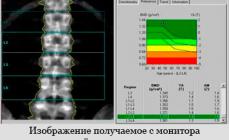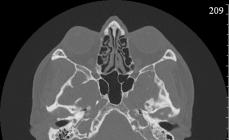Chairman of the Council of Ministers of the USSR, Joseph Stalin died on March 5 at 21:50. From March 6 to March 9, the country was immersed in mourning. The coffin with the body of the leader was set in Moscow in the column hall of the House of Unions. Thousands of millions of millions took part in mourning events.
To maintain public order to the capital were troops. However, the authorities did not expect such an incredible influx of those who wish to conduct Stalin in last way. The victims of the funeral on the day of the funeral, March 9, according to various sources, were from 300 to 3 thousand people.
"Stalin entered russian history as a symbol of greatness. The main achievements of the Stalin era are industrialization, victory in the Great Patriotic War and the creation of a nuclear bomb. The foundation left the leader allowed the country to achieve nuclear parity With the US and launch the rocket into space, "the doctor of historical sciences noted in a conversation with RT, political analyst Dmitry Zhuravleov.
At the same time, according to the expert, the Soviet people paid an enormous price for great accomplishments in the Stalin era (1924-1953). The most negative phenomena, according to the evaluation of the zhuravlev, there were collectivization, political repression, labor camps (GULAG system) and gross disregard for the elementary needs of a person.
The mystery of the death of the leader
Stalin was distinguished by pathological distrust of doctors and neglecting their recommendations. The serious leader's health degradation began in 1948. The last public speech of the Soviet leader took place on October 14, 1952, on which he summed up the XIX Congress Congress.
- Joseph Stalin performs at the final meeting of the XIX Congress of the CPSU
- RIA News
For the last years of life, Stalin spent a lot of time at the "near Dacha" in Kuntseva. On March 1, 1953, the leader was in a fixed state found employees of state bors. They reported on this Lavrentia Beria, George Malenkov and Nikita Khrushchev.
Operational medical care was not rendered. Doctors came to inspect him only on March 2. What happened in the early days of March at the "near Dacha" - a mystery for historians. The question of whether it was possible to save the life of the leader, still remains unanswered.
Son Nikita Khrushchev is confident that Stalin became the "victim of his own system." His approximate and doctors were afraid to take something, although it was obvious that the leader is in critical condition. According to official information, Stalin diagnosed stroke. There was no announced about the disease, but on March 4, the party top, apparently, sighting the head of the leader, decided to break silence.

- Queue of those who want to say goodbye to Joseph Stalin at the House of Soviez, Moscow
- RIA News
"On the night of March 2, 1953, I.V. Stalin there was a sudden hemorrhage into the brain, which captured the vital areas of the brain, as a result of which the palsy of the right leg and the right hand came with the loss of consciousness and speech, "the article was said in the Pravda newspaper.
"The semblance of a palace coup"
Colonel KGB retired, counterintelligence Igor Prelin believes that the entourage of the leader understood the inevitability of his ambulance and was not interested in recovering Stalin.
"These people were interested in it (Stalin. - RT.) Rather, left for two considerations. They feared for their position and well-being that he would remove them, remove and repress. And the second - of course, they themselves rushed to power. They understood that Stalin's days were considered. It was clear that this was the final, "said Prena in one of the interviews.
Also on the topic
 "Each destiny is a mini-investigation": The History Museum of History will help to find repressed relatives
"Each destiny is a mini-investigation": The History Museum of History will help to find repressed relativesIn Moscow, on the basis of the Museum of History of the Gulag, the Documentation Center has earned. The staff of the Center provide all the wishes to learn about ...
The main applicants for the role of the leader of the Soviet state were former head NKVD Lavrenty Beria, Deputy Chairman of the Council of Georgy Malenkov, First Secretary of the Moscow Region of Nikita Khrushchev and Member of the Politburo of the Central Committee of the CPSU Marshal Nikolay Bulganin.
During the period of Stalin's disease, the party Tips redesigned the highest government positions. It was decided that the post of chairman of the Council, who belonged to the leader, will take Malenkov, Khrushchev will be the first secretary of the CPSU Central Committee (the highest position in the party hierarchy), Beria will receive a portfolio of the Minister of the Interior, and Bulganin - Minister of Defense.
Unwillingness of Beria, Malenkov, Khrushcheva and Bulganin to save by all possible methods The life of the leader and redistribute state posts spawned a widespread version of the existence of an antistali conspiracy. The conspiracy against the leader was objectively beneficial for the party tip, believes a crane.

- Joseph Stalin, Nikita Khrushchev, Lavrenty Beria, Matvey Shkiryatov (in the first row right to left), Georgy Malenkov and Andrei Zhdanov (in the second row to the right left)
- RIA News
"It was hypothetically possibly a certain semblance of a palace coup, since the open confrontation of the leader was completely excluded. Nevertheless, the theory of conspiracy and the violent death of Stalin did not receive reinforced concrete evidence. Any versions on this score are private opinions that are not based on documentary confirmation, "said Zhuravlyov in conversation with RT.
The collapse of the main challenger
Poststalin regime in 1953-1954 is often referred to as "Collegial Management". The authority in the state was distributed between several party bosses. However, historians converge in the opinion that under the beautiful screen of "collegial management" was hidden by the most severe struggle for absolute leadership.
Malenkov, being a curator of the most important defense projects of the USSR, had close ties with the military elite of the country (one of the supporters of Malenkov is considered Marshal Georgy Zhukov). Beria had a huge influence on security authorities - key institutions of power in the Stalinist era. Khrushchev used the sympathies of the party apparatus and was perceived as a compromise figure. The weakest positions were at Bulganin.
At the funeral of the first coffin with the leader from the trade union house, Beria (left) and Malenkov (Right) took place. On the podium of the Mausoleum in which Stalin buried (in 1961, the leader was reburied by kremlin Wall), Beria stood in the center, between Malenkov and Khrushchev. It symbolized his dominant position at that time.
Beria united under his authority the Ministry of the Interior and the Ministry of State Security. On March 19, he replaced almost all the heads of the Ministry of Internal Affairs in the Union republics and regions of the RSFSR.
However, Beria did not abuse power. It is noteworthy that his political program Coincident with democratic initiatives that Malenkov expressed and Khrushchev. Oddly enough, but it was Lavrenti Pavlovich that began the revision of the criminal cases of those citizens who were accused of anti-Soviet conspiracies.
On March 27, 1953, the Interior Minister signed a decree "On Amnesty". The document made it possible to release citizens from the conclusion of citizens condemned for official and economic crimes. In total, more than 1.3 million people were published from prisons, criminal proceedings were discontinued in relation to 401 thousand citizens.
Despite these steps, Beria is firmly associated with repression, which were held in the Stalinist era. On June 26, 1953, the chapter of the Ministry of Internal Affairs was summoned to a meeting of the Summin and detained, accusing in espionage, falsification of criminal cases and abuse of powers.
His nearest colleagues were condensed in the hydration. On December 24, 1953, the Special Judicial Presence of the Supreme Court of the USSR sentenced Beria and his supporters to the death penalty. The ex-minister of the internal affairs was shot in the bocker of the Moscow Military District headquarters. After the death of the main applicant, about ten functionaries were arrested and convicted of the authorities, which were held in the "Band Beria".
Triumph Khrushchev
The elimination of Beria became possible thanks to Alliance Malenkov and Khrushchev. In 1954, the struggle between the head of the Council and the first secretaries of the CPSU Central Committee was unfolded.

- Georgy Malenkov
- RIA News
Malenkov advocated the elimination of the beggars of the Stalinist system both in politics and in the economy. He urged to leave the cult of the leader's personality in the past, improving the position of collective farmers and focus on the production of widespread consumption.
Malenkov's fatal mistake was indifferent to the party-state apparatus. The Chairman of the Summin reduced the salary officials and repeatedly accused the bureaucracy in the "full neglect of the needs of the people."
"The main problem of Stalinism for the KPSS figures was that anyone could get under the rink of repression. The party apparatus is tired of this unpredictability. He needed guarantees of stable existence. Just promised Nikita Khrushchev. In my opinion, this approach was the pledge of his victory, "said Zhuravlyov.
In January 1955, the head of the USSR government was criticized by Khrushchev and party comrades for failures in economic policy. On February 8, 1955, Malenkov left the post of chapter of the Sovmin and received a portfolio of the minister of power plants, retaining membership in the Presidium of the CPSU Central Committee. Malenkov's post occupied Nikolai Bulganin, and Georgy Zhukov became Minister of Defense.
Such attitude towards a political opponent was intended to emphasize the beginning of a new era, where he reigns a gentle attitude to the Soviet nomenclature. Her symbol was Nikita Khrushchev.
"Guide of the system"
In 1956, at the XX Congress, Khrushchev came out with a famous speech on the debate of the cult of personality. The period of his reign is called a thaw. From the mid-1950s to the beginning of the 1960s, hundreds of thousands of political prisoners received freedom, the labor camps (GULAG) system was completely dismantled.

- Joseph Stalin and Nikita Khrushchev welcomed the participants of the May Day demonstration on the Tribune of Mausoleum V.I. Lenina
- RIA News
"Khrushchev was able to become his own for the apparatus. During Stalinism, he said that under the repression did not have figures for the Bolshevik Party. However, as a result, Khrushchev became the hostage of the management system created by him, "said Zhuravlyov.
As the expert explained, Khrushchev in communication with subordinates was distinguished by excessive sharpness. He traveled a lot around the country and in the personal meetings with the first secretaries of the Commands subjected to their cruel criticism, committing, in fact, the same mistakes as Malenkov. In October 1964, the party nomenclature has shifted Khrushcheva from the post of first secretary of the CPSU Central Committee and the Chairman of the Council.
"Khrushchev took literate steps to become the leader of the USSR for some time. However, he was not going to radically change the Stalin system. Nikita Sergeevich limited himself to the correction of the most obvious drawbacks of the predecessor, "said Zhuravlyov.

- First Secretary of the Central Committee of the CPSU Nikita Khrushchev
- RIA News
According to the expert, the key problem of the Stalin system was the requirement of a permanent labor and combat feat soviet man. Most projects of Stalin and Khrushchev walked to the USSR, but the personal needs of citizens were given catastrophically attention.
"Yes, with Khrushchev, Elite and society sighed freely. However, a person still remained a means of achieving ambitious purposes. People are tired of endlessly chase records for records, they are tired of calling for self-sacrifice and waiting for the onset of the Communist Paradise. This problem was one of the key reasons for the subsequent collapse of the Soviet statehood, "the ravine raised the crane.
Most of the population, extended by the decades of the Board of Stalin, was ready to sacrifice themselves in the example of the builders of the Egyptian pyramids. However, there were people and in those days that knead the "friend of all children" and the "father of peoples," - having fallen off the vodka and biting a cucumber with a sauerkraut, "they decided that now came to their time.
First version of post-Stalin's upgrade
Beria-Malenkov-Khrushchev and the Bulganin joined them became the first version of the upgrade of the political and social system of the post-Stalin era.
Now, few people remember, but after Stalin, at the head of the country, the Beria, who, convenient to him, Comrade Malenkov, got up. Under the life of Stalin, Comrade Malenkov was the one who was now called a speechwriter - in addition to the official post occupied by him. Most of the Stalin's reports at the end of the forties and early fifties were written by George Malenkov.
Beria and Malenkov seemed to be in order to strengthen in power and not give themselves to devour the rest of the Kremlin gray wolvesIt is necessary to undermine all state structures and, the main thing, the post of Chairman of the Council of Ministers of the USSR. To the party structures, they reacted shortly rashly.
It was the post of chairman and took Malenkov, and the portfolios were divided between his supporting and Beria "comrades". Comrade N.S. Khrushchev State office did not get. He was put on the insignificant - according to the high-nomenclature criteria of the time, the almost nominal post of secretary of the CPSU Central Committee.
Shah and Mat Nikita Khrushchev
A little less than two years needed Nikita Khrushchev, so that in the unusual - calm - manner, with the help of horsesky party games, and sometimes very risky steps, shifting their rivals. And not just shifted, but to intercept and safely assign them, almost democratic, undertaking.
So, it was Beriya that carried out a number of large industrial enterprises from the system of Gulag to departmental ministries, began the process of mitigation and termination of the already launched flywheel of new repression (the case of doctors, etc.), carried out amnesty and conducted a rehabilitation of several dozen hundreds of prisoners - it was a drop in The sea of \u200b\u200bGulag, and she almost did not touch the political prisoners, but it was then that many thousands of innocently convicts originated for changes.
In a matter of months, he began to turn from the proceedings of Hell in one of the most "liberal" reformers, but he did not hate it less. Especially all the Kremlin assessors, since it was he who had all the threads that bind each of them and their approximations with repression of the 30s and 50s.
Malenkov was the author of the idea of \u200b\u200bdebuning a cult of personality, reforming agriculture, liberation from the socialist slavery of collective farmers and the priority of light industry over heavy. He was generally a commitment to NEP ideas.
Khrushchev with two preventive blows - first on Beria, and then in Malenkov, - got rid of it superior to the intellect, but not on the ambitions of rivals.
It is the attempt to Malenkov to expand the country's office from the Stalinist model to Leninsky - Colleaginal, - when the government is headed and at the same time leads the activities of the Supreme Commissars of the Party, and he played a keen joke with him, since the collegiality is possible only during democracy, and not with authoritarian totalitarianism.
At one of the meetings of the Presidium of the Central Committee, which the Malenkov came to be slightly raised, his place was occupied by Khrushchev. I decided to return to the tradition of Lenin and then I should return to the tradition of Lenin and, as the head of government, "Khrushchev dismissively replied him:" Do you, Lenin? " It was from this moment on that the star of the winsted and executive Malenkov finally fell away from the Kremlin Sky.
Of course, Nikita Sergeevich did not decide from Kondachka to such an extravagant step. A somewhat earlier patron Malenkov Beria was appointed "Agent of International Imperialism," convicted, and shot. It is on him, and not on Stalin, who even after death was afraid of Khrushchev, was more entrusted with wine for repression - as a conspiracy against soviet people. The accusations of involvement in the repression of steel for Khrushchev a convenient mechanism for the removal of all dangerous and disagreeable rivals, which had to repel, and then put off the authority. It is so Khrushchev and removed almost all who many years have been especially close to Stalin: Molotov, Kaganovich, Mikoyan and others. Why none of them tried to "attract" to the same responsibility of Khrushchev himself, because not for anyone there was no secret of his zeal in this matter - this is a question for psychoanalysts.
With a huge benefit for myself, Khrushchev, Khrushchev, the ideas of Malenkov, but mainly only in terms of the cultivation of a cult of personality. His understanding of the economy and surprisingly Voluntarist appeal with her, ultimately, after the rapid take-off, prepared by Malenkov, led to the same rapid decline, right up to the execution of a rally in Novocherkassk in 1962. Thus, in the country, it was finally finished with the outlined, but did not have time to begin serial-progressive economic reforms.
Zugzvang for Khrushchev
For five years, consistently, Khrushchev eliminated all his numerous competitors, each of whom after the death of Stalin could qualify for the first role in the state: from Beria - until all this time helped him Zhukov.
In March 1958, the formation of a new government began in the USSR. As a result, Khrushchev achieved his appointment as Chairman of the Council of Ministers. At the same time, they were preserved and the post of first secretary of the CPSU Central Committee was preserved. In fact, this meant the complete victory of Khrushchev. The struggle for power after Stalin was over.
One could not take into account Comrade Khrushchev - not only he knew how to put conspiracies behind the Kremlin walls. Removing from the path of all the same as he was the immediate witness of the death of Stalin, without leaving near himself not only enemies, but also if not friends, then comrades, the last of which were in the link of Zhukov, he became a victim of an absolutely identical conspiracy against him , organized by Shelepin-seven-party-breech and attached to them the Suslov and Podgorny, who are tired of the poorly educated and unpredictably rolling from the extreme to the extreme, initiative idiocyism of Khrushchev.







